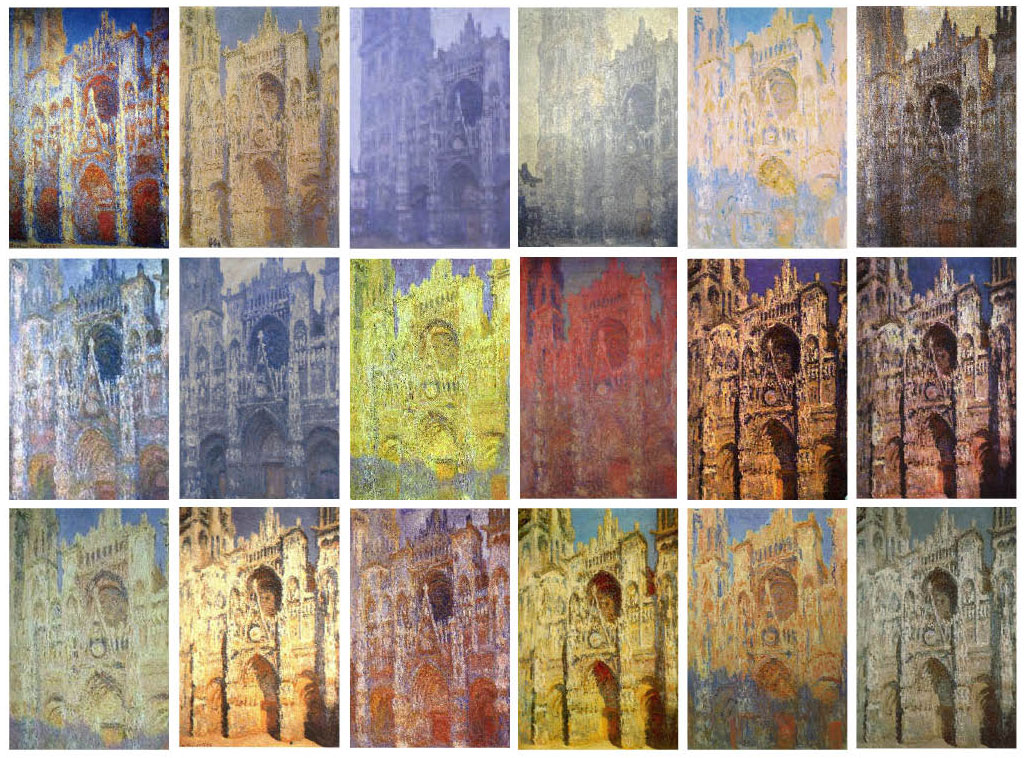I’m sure Monet has been selected as the topic of blog posts
many times before, but I hope to explain my personal affinity for certain works
of his, and in the process communicate something about what I imagine to be the
ideal relationship with drawing.
Last year I took a graduate neuroscience course on visual
perception and the brain, and for my final project I wrote a research paper
analyzing the relationship between the biological facts of the human visual
system and the development of impressionist techniques. I chose the topic
because I had been enamored of Monet’s painting of the iconic Japanese bridge
in his garden in autumn; when I saw it at MoMA in New York, I was struck by the
parallel between the autumnal season and the autumn of Monet’s life. When I
began to ecplore the human visual system this became even more interesting; the
fact that Monet had a severe cataract in his later life can be seen in the
image and exaggerates his earlier impressionistic techniques. This is
fascinating in light of how impressionist art inherently draws on features of
the human visual system to create subjective reality out of objectively
non-realistic artistic techniques.

I also am particularly struck by his commitment to exploring
temporality and seasonality. I think my own experience drawing would have been
much less stressful if I had been able to understand
the nature of objects and thus describe them, rather than attempt to
painstakingly recreate. I think one of the true beauties of visual art is its
ability to explore what we perceive ephemerally in permanent images. I was
fortunate enough to have the chance to visit the Rouen cathedral that Monet
painted many times over, and then some years later visited the installation of
many of those painting in the Musee d’Orsay in Paris, which only made my
admiration for Monet’s expressiveness that much greater.

Despite the beauty we see when looking at Monet, one would
hardly describe them as perfect. I think my own desire to recreate exactly what
I see tends to thwart what could be a much more natural expressiveness that,
while flawed, would make a more honest and interesting drawing. I need to learn
how to trust what I am experiencing and my own ability to begin at a blank page
and constantly revise rather than erase. Interestingly, Monet actually painted
over the “first drafts” of many of his canvases, and I relate to that feeling
of needing to start over. The difference is that Monet had the time and
opportunity to devote tons of time to a faithful, almost ascetic study of
individual scenes. In an effort to finish, I feel as though I constantly would
forgo the trust in my own ability to express what I am seeing—to describe the
objects—in favor of an effort to simply depict them, which ended up usually
seeming more time-intensive in the end.
No comments:
Post a Comment